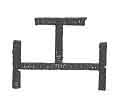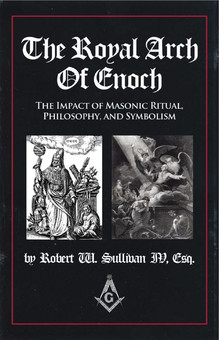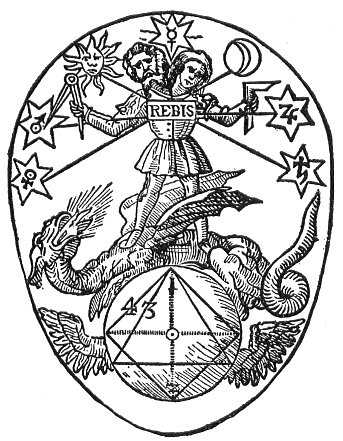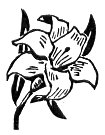p. 204
 WHETHER the legend and history of this Degree are historically true, or but an allegory, containing in itself a deeper truth and a profounder meaning, we shall not now debate. If it be but a legendary myth, you must find out for yourself what it means. It is certain that the word which the Hebrews are not now permitted to pronounce was in common use by Abraham, Lot, Isaac, Jacob, Laban, Rebecca, and even among tribes foreign to the Hebrews, before the time of Moses; and that it recurs a hundred times in the lyrical effusions of David and other Hebrew poets.
WHETHER the legend and history of this Degree are historically true, or but an allegory, containing in itself a deeper truth and a profounder meaning, we shall not now debate. If it be but a legendary myth, you must find out for yourself what it means. It is certain that the word which the Hebrews are not now permitted to pronounce was in common use by Abraham, Lot, Isaac, Jacob, Laban, Rebecca, and even among tribes foreign to the Hebrews, before the time of Moses; and that it recurs a hundred times in the lyrical effusions of David and other Hebrew poets.
We know that for many centuries the Hebrews have been forbidden to pronounce the Sacred Name; that wherever it occurs, they have for ages read the word Adonaï instead; and that under it, when the masoretic points, which represent the vowels, came to be used, they placed those which belonged to the latter word. The possession of the true pronunciation was deemed to confer on him who had it extraordinary and supernatural powers; and the Word itself, worn upon the person, was regarded as an amulet, a protection against personal danger, sickness, and evil spirits. We know that all this was a vain superstition, natural to a rude people, necessarily disappearing as the intellect of man became enlightened; and wholly unworthy of a Mason.
It is noticeable that this notion of the sanctity of the Divine Name or Creative Word was common to all the ancient nations. The Sacred Word HOM was supposed by the ancient Persians (who were among the earliest emigrants from Northern India) to
p. 205
be pregnant with a mysterious power; and they taught that by its utterance the world was created. In India it was forbidden to pronounce the word AUM or OM, the Sacred Name of the One Deity, manifested as Brahma, Vishna, and Seeva.
These superstitious notions in regard to the efficacy of the Word, and the prohibition against pronouncing it, could, being errors, have formed no part of the pure primitive religion, or of the esoteric doctrine taught by Moses, and the full knowledge of which was confined to the Initiates; unless the whole was but an ingenious invention for the concealment of some other Name or truth, the interpretation and meaning whereof was made known only to the select few. If so, the common notions in regard to the Word grew up in the minds of the people, like other errors and fables among all the ancient nations, out of original truths and symbols and allegories misunderstood. So it has always been that allegories, intended as vehicles of truth, to be understood by the sages, have become or bred errors, by being literally accepted.
It is true, that before the masoretic points were invented (which was after the beginning of the Christian era), the pronunciation of a word in the Hebrew language could not be known from the characters in which it was written. It was, therefore, possible for that of the name of the Deity to have been forgotten and lost. It is certain that its true pronunciation is not that represented by the word Jehovah; and therefore that that is not the true name of Deity, nor the Ineffable Word.
The ancient symbols and allegories always had more than one interpretation. They always had a double meaning, and sometimes more than two, one serving as the envelope of the other. Thus the pronunciation of the word was a symbol; and that pronunciation and the word itself were lost, when the knowledge of the true nature and attributes of God faded out of the minds of the Jewish people. That is one interpretation–true, but not the inner and profoundest one.
Men were figuratively said to forget the name of God, when they lost that knowledge, and worshipped the heathen deities, and burned incense to them on the high places, and passed their children through the fire to Moloch.
Thus the attempts of the ancient Israelites and of the Initiates to ascertain the True Name of the Deity, and its pronunciation, and the loss of the True Word, are an allegory, in which are represented

Moe is the founder of GnosticWarrior.com. He is a father, husband, author, martial arts black belt, and an expert in Gnosticism, the occult, and esotericism.






![How the same Aidan, by his prayers, saved the royal city when it was fired by the enemy [Before 651 A.D.] | Book 3 | Chapter 16 How the same Aidan, by his prayers, saved the royal city when it was fired by the enemy [Before 651 A.D.] | Book 3 | Chapter 16](https://www.gnosticwarrior.com/wp-content/plugins/contextual-related-posts/default.png)